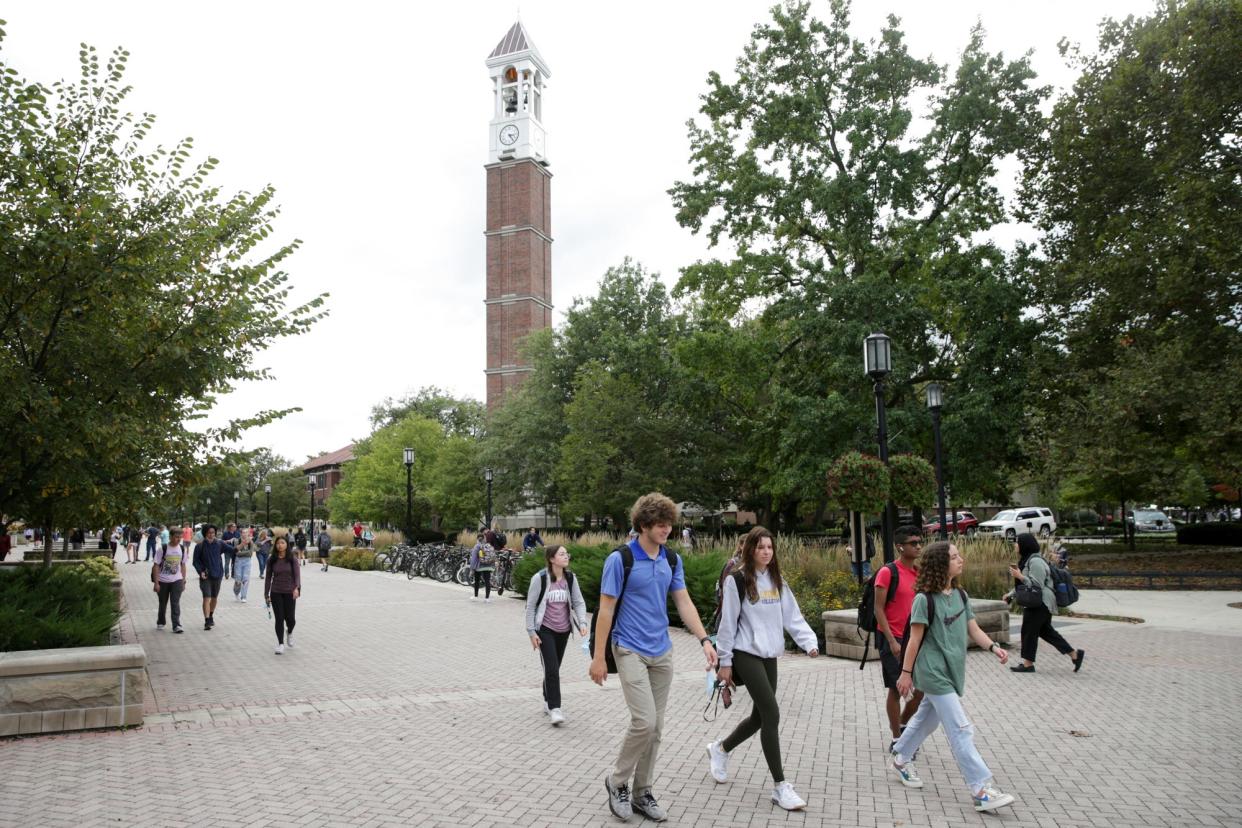Purdue's tech diplomacy institute adds new fellows

WEST LAFAYETTE, Ind. − The Krach Institute for Tech Diplomacy at Purdue has welcomed three new fellows. They will further the development in chemical engineering, advanced manufacturing, food safety, health equity, and professional management.
Dr. Jan-Anders E. Mansson is an expert in design and manufacturing of "composite systems for high-performance applications of aerospace, automotive, and sports sectors," according to a recent release.
Mansson is the executive director of the Ray Ewry Sports Engineering Center at Purdue. He is also a distinguished professor in Materials and Chemical Engineering, where he founded the Manufacturing Design Laboratory.
“In a time when technology, on a global level, increasingly penetrates our professional and private life, it is obvious that the merger of technology and diplomacy should be high on any societal agenda,” Mansson said in a release. “The performance and competition drivers within the sports market provides an exceptionally dynamic implementation space for emerging technologies, which is built on synergistic interactions with other industrial branches such as aerospace, automotive, consumer electronics, and more.”
The next new fellow, Dr. Haley Oliver, provides expertise on foodborne pathogens in food systems such as cellular agriculture to the Krach Institute.
Oliver is the director of the U.S. Agency for International Development's "Feed the Future Innovation Lab for Food Safety." She also teaches food safety, sanitation and similar subjects in the field at Purdue. In 2021, Oliver was recognized by the university as a 150th anniversary Professor of Food Science due to her extensive knowledge and experience teaching in the field.
“Tech diplomacy will be central to democratically meeting future food and nutrition demands, particularly as the global population expands in the most food-insecure regions of the world,” Oliver said. “As a senior research fellow, I am expanding the Krach Institute for Tech Diplomacy at Purdue’s robust research portfolio into the agriculture sector, as the Institute recognizes food security through technology is foundational to global stability.”
The final most recent fellow to be added to the institute is Cristina Farmus. She is a management professional who will "engage in bilateral tech dialogues with allied nations, explore the future of communications through 6G mapping and bridge the Purdue tech community with the diplomacy community," a release said.
Farmus is the chief of staff to the executive vice president for Strategic Initiatives at Purdue. She is currently involved in projects relating to semiconductor degrees and industry engagement, advanced pharmaceutical manufacturing and the study of nuclear energy.
“There has never been a better time to analyze the implications of technology on diplomacy and vice versa,” Farmus said in a release. “Purdue’s expertise in critical areas such as semiconductors, hypersonics, 5G/6G, biotechnology, artificial intelligence, and cybersecurity is a fundamental block in understanding how technical advancements constantly reshape national and world strategy, and how well informed policies can enable a free, safer world, based on democratic values.”
Bonnie Glick, director of the Krach Institute for Tech Diplomacy, commented on the addition of these three new fellows and how their presence will help further Purdue's development on each of the fields they represent.
“With the addition of Dr. Jan-Anders Mansson, Dr. Haley Oliver, and Cristina Farmus as Senior Fellows, the Krach Institute for Tech Diplomacy at Purdue continues to lead the way in harnessing emerging technologies to advance freedom,” Glick said. “Our three new fellows will be instrumental in ensuring that U.S. and allied leaders are well-versed in these critical technology areas to ensure we are meeting the global foreign policy challenges of today and tomorrow.”
This article originally appeared on Lafayette Journal & Courier: Purdue's tech diplomacy institute adds new fellows

